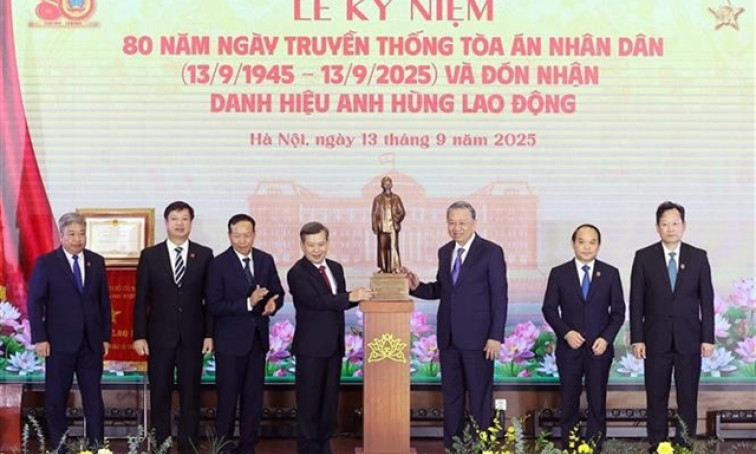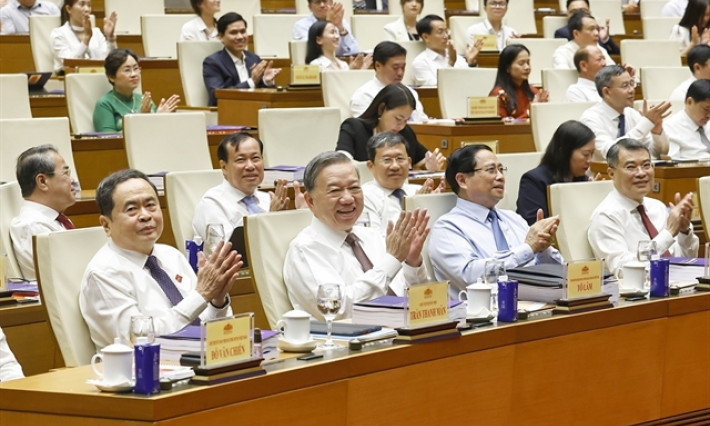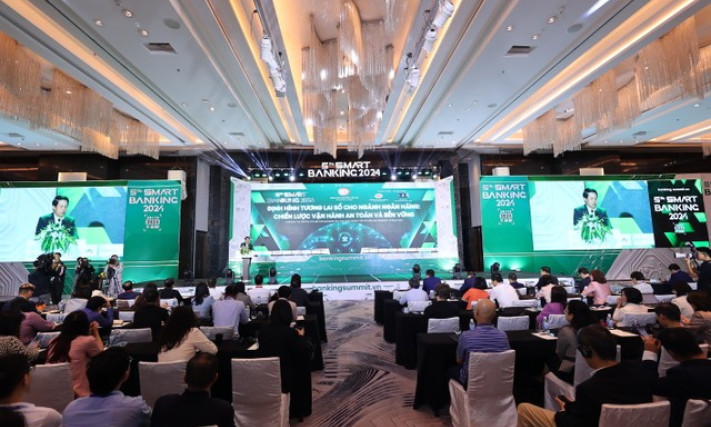Finding ways to preserve and develop stage arts
The 2023 National Outstanding Theatrical Excerpts Festival, which has taken place over 12 days in the northern province of Ha Nam, gave a chance for the locals to enjoy many unique theatrical excerpts.
Not only an art playground for stage artists to exchange and learn experiences, but the festival is also an opportunity for them to recognise and evaluate the country's stage, thereby finding ways to preserve and develop this art form.
The 2023 National Outstanding Theatrical Excerpts Festival was jointly held by the Vietnam Stage Artists Association (VSAA), the Ministry of Culture, Sports and Tourism and the Ha Nam Provincial People’s Committee. Featuring 106 typical excerpts in different forms including Cheo (traditional opera), Tuong (classical drama), Cai luong (reformed opera), folk opera, drama and circus, the festival created a colourful and emotional art party.
The richness and diversity of historical, traditional, folk and modern themes in the excerpts are vivid proof of the responsibility of more than 1,000 artists from 33 professional art units around the country.
The Festival’s Arts Council acknowledged that despite a short time, most of the excerpts had reasonable structures, helping viewers understand the conveyed contents, thereby conveying meaningful and human messages about the aspiration to achieve good things, as well as condemning the evil and lowly and raising alarm bells about the degradation of morality and personality.
Many excerpts won the best prizes at the festival, as they almost completely met the criteria for staging, acting, content and arts, including “Nhung vi sao khong tat” (Stars that don't go out) by Ha Nam Provincial Cultural and Arts Centre, “Song han Luc Dau Giang” (Hate waves of Luc Dau Giang) by Vietnam Tuong Theatre, “Oan khuat mot thoi” (Once-in-a-lifetime grievances) by Hanoi Cheo Theatre, “Cuc oi” (Cuc) by Vietnam Circus Federation and “Dong song do” (Red River) by Tran Huu Trang Theatre.
Especially, with 29 classic excerpts of traditional Tuong and Cheo art forms, the creative groups kept the principles and core characteristics of each form, as well as promoted the values left by the forefathers, with a new rhythm which is suitable for the reception of today's young audiences.
54 gold and 60 silver orders presented to the actors and actresses are worthy results recognising the efforts of the artists who shined on the stage, creating many emotional ladders for viewers through impressive roles.
Notably, up to 85 out of 106 excerpts are under traditional forms. This is vivid proof that affirms the creative aspirations and efforts to keep the enthusiasm of the artists.
It is touching that many actors and actresses, especially those in non-public units, have had to fund excerpts to attend the festival by themselves. The festival's jury emphasised that they are the artists’ enthusiasm, passion and responsibility for the profession.
According to People's Artist Giang Manh Ha, Vice Chairman of the VSAA, this is the theatrical festival with the highest number of entries ever. The new feature of this year’s festival was the prizes for supporting actors and actresses, contributing to increasing the attractiveness of the festival and stimulating them to perform their roles to their fullest.
However, besides the bright spots, the festival still revealed limitations that need to be overcome. Speaking at the closing ceremony for the festival, Dr. Nguyen Dang Chuong, Head of the Jury said frankly that theoretically, all units should have sent their best excerpts to the festival; but in fact, some excerpts were very amateurish.
In addition, there were excerpts on modern topics that were fictionalised by the crew. True stories in life were exaggerated, creating absurd characters that negatively affected the audiences’ aesthetic and psychological perception and emotions.
Dr. Nguyen Dang Chuong also noted that excessive licentiousness still existed in the handling of acting in some excerpts on folk and modern topics, leading to breaking their structure and overshadowing the shine of characters and artists.
Another problem was the creators’ repetition of the past, turning the artists into “performing workers”. Another "sigh" from the festival was the situation in which participating units rushed to perform and then left immediately because they did not have enough funds to stay. As a result, the goal of exchanging and learning experiences among the delegations was incomplete. This is also a "bottleneck" that has not been removed, which has existed for decades at theatrical festivals.
From the reality at this year’s festival, the experts realised the big difference in art quality between professional units. Many units are in crisis in terms of both the quantity and quality of the cast team.
According to the Jury, one of the main reasons is that the localities have merged and mechanically simplified the art units when rearranging the staffing apparatus. These are limitations that need to be frankly and substantively recognised for prompt removal, to preserve traditional theatrical values and continue to accompany life today.
Therefore, it is crucial to make an early and specific policy for traditional stage artists and promote human resource training to fill the gap in the teams of creators and performers, so that they can pursue their passions and dedicate themselves.
Moreover, it is essential to have a coordinated solution so that the localities can pay more attention to the fund for art units to develop their plays, travel and stay when participating in professional art competitions at the national level. Thanks to that, theatrical festivals will be professional festivals, bringing positive effects in promoting the quality of artistic creation.






